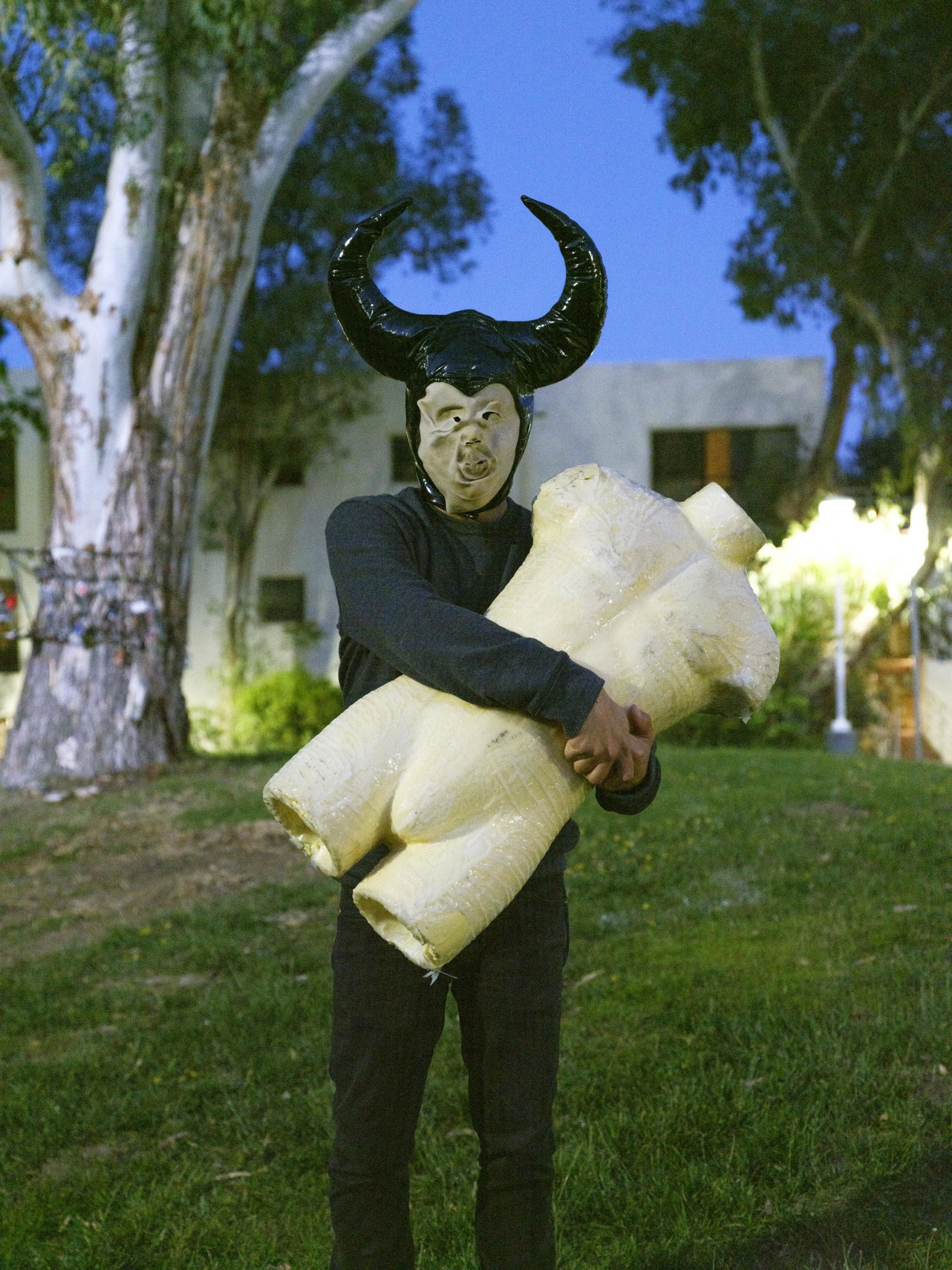EAT YOU
I spent my early years as an artist in São Paulo (Brazil), and in 2021 I moved to California to pursue my MFA at CalArts. This experience has been ambivalent. I have been interested in American culture (mainly cinema) since my childhood. At the same time, I am strongly critical of the colonial assimilation of American culture in Brazil and South-America. So what would be my place in Brazilian anticolonial discourse? Especially considering that I am closer to the colonizer’s culture than to native indigenous culture?
An important anticolonial principle in Brazil and in Latin America in general is the concept of “anthropophagy” (anthro: human, phagy: eating, devouring). This theory, developed by Brazilian poet Oswald de Andrade in Manifesto Antropofágo (1928), encourages the subversion of the colonial order through the “cannibal” act of eating, digesting, and regurgitating the colonizer’s culture. This principle became an inspiration for my practice in the US, and a foundation for my thesis show EAT YOU.
Each work employed a different part of the body (mouth, voice, face, skin, torso), in a process of dismemberment or perhaps self-cannibalizing. The works also explored my long-term interest in languages, especially Brazilian Sign Language.
Images of horns and cattle intrigue me in that they can be allegories of male dominance used by or associated with far-right in Brazil and in the US (two of the world’s main exporters of cattle). I also associate cattle with the total annihilation of individuality, as well with the brutal commodification and consumption of flesh. Having that in mind, I wrote a manifesto, which I named “Zombie Cattle”.
The zombie is an important image in anticolonial discourse, and it is known to have originated from Haitian folklore in the 17th century. It has since become an arguably ubiquitous and overused trope. Nonetheless, the zombie can still be powerful in what it represents. The zombie has already lost its life, but refuses to die. It has lost all hope, but continues to move. The “Zombie Cattle” is also no longer edible, and it can make the colonizers part of its herd, forcing them to face their own repressed cannibalistic desires.

Zombie Cattle (CalArts). Photograph by Malte Säenger, 2022